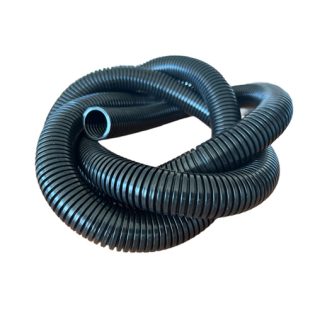Plastic electrical conduits have become an indispensable component in modern electrical installations. Their versatility, durability, and cost-effectiveness make them a preferred choice over traditional metal conduits. The plastic extrusion process of manufacturing these conduits involves a complex yet fascinating technique known as plastic extrusion.

What is Plastic Extrusion?
Plastic extrusion is a manufacturing process that involves melting plastic pellets and forcing them through a shaped die to create continuous profiles. This process is widely used to produce electrical conduit, and a variety of plastic products, including pipes, tubes, profiles, and sheets.
The Extrusion Process for Electrical Conduit Manufacturing
The process of manufacturing plastic electrical conduits involves several key steps:
- Material Selection:
- The first step is to select the appropriate plastic resin. Common choices for conduit manufacturing include PVC (Polyvinyl Chloride) and HDPE (High-Density Polyethylene). These materials offer excellent electrical insulation, durability, and resistance to corrosion.
- Material Preparation:
- The selected plastic resin is dried to remove any moisture that could degrade the material during the extrusion process.
- Extrusion:
- The dried resin is fed into an extruder, a machine that heats and melts the plastic. The molten plastic is then forced through a die, which shapes the plastic into the desired conduit profile.
- Cooling and Solidification:
- The extruded conduit is cooled rapidly to solidify the plastic. Either air cooling or water cooling can do this.
- Sizing and Cutting:
- Once the conduit has cooled and solidified, it is sized to the desired dimensions and cut into specific lengths.
- Quality Control:
- Rigorous quality control measures are implemented to ensure that the extruded conduits meet industry standards. These measures may include visual inspection, dimensional checks, and testing for electrical and mechanical properties.
Advantages of Plastic Electrical Conduits
- Corrosion Resistance: Plastic conduits are highly resistant to corrosion, making them ideal for use in harsh environments.
- Electrical Insulation: Plastic conduits provide excellent electrical insulation, protecting cables from short circuits and electrical shock.
- Cost-Effective: Generally speaking, plastic conduits are less expensive than metal conduits.
- Fire Resistance: Many plastic conduits are fire-resistant, reducing the risk of fire spread in case of electrical faults.
By understanding the plastic extrusion process, you can appreciate the engineering and manufacturing expertise that goes into producing the high-quality electrical conduits that are essential for modern electrical installations.